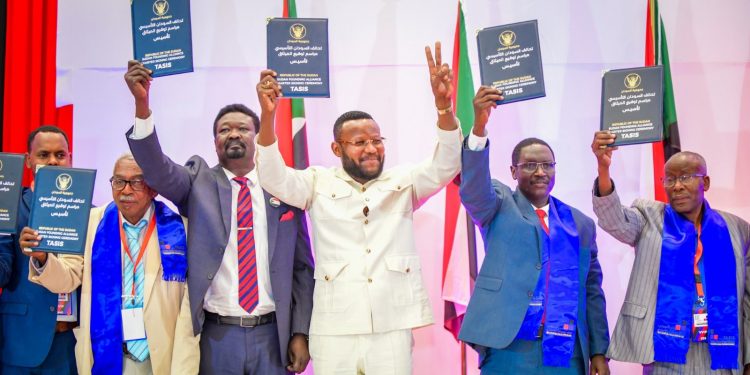Sudan’s paramilitary Rapid Support Forces (RSF) and allied political and armed groups have signed a charter to establish a “government of peace and unity,”.

The agreement, signed late Saturday, includes powerful rebel leader Abdelaziz al-Hilu, who controls vast territories in South Kordofan and has long advocated for a secular Sudan.
While the proposed government is unlikely to receive widespread international recognition, it highlights the deepening divisions within Sudan as the country nears two years of civil war. The Sudanese army, which is pushing the RSF back from central Sudan, has condemned the move.
Former government official and armed group leader al-Hadi Idris stated that the new government would be officially announced from within Sudan in the coming days.

According to the charter, Sudan should be a “secular, democratic, and decentralized state” with a single national army—although it allows armed groups to continue existing. The signatories claim their goal is to unify Sudan and end the war, criticizing the army-aligned government in Port Sudan for failing to do so.
RSF leader General Mohamed Hamdan Dagalo, accused of widespread human rights abuses, was sanctioned by the U.S. earlier this year. The war between his forces and Sudan’s military, led by General Abdel Fattah al-Burhan, has created a severe humanitarian crisis, with millions facing hunger and famine.
The signing took place in a private event in Kenya, following an earlier high-profile meeting in Nairobi. Kenya’s involvement has sparked diplomatic tensions, with Sudan criticizing President William Ruto for interfering in the conflict.

Meanwhile, Sudan’s government has accused the United Arab Emirates of providing military and financial support to the RSF—claims backed by U.N. experts and U.S. lawmakers. The UAE has denied these allegations.
Earlier this week, Sudan’s military expanded its constitutional powers, with Burhan announcing plans to form a “war cabinet” soon.









